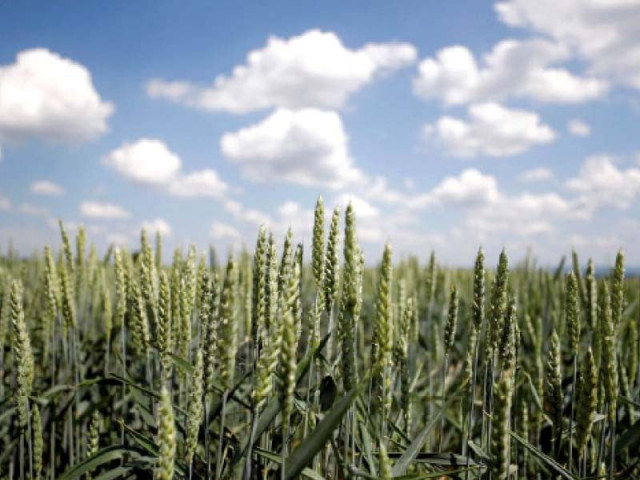Biohealth cooperation to flourish
Pakistan, China open Biohealth Agri Demonstration Park after 13 years of efforts

After 13 years of endeavours from both Pakistani and Chinese sides, the Pak-China Biohealth Agriculture Demonstration Park was finally inaugurated this year, said Northwest A&F University, China Professor Zhang Lixin in an interview with China Economic Net (CEN).
It was a panel interview which was also attended by Pak-China Biohealth Cooperation project Chairman Professor Dr Muhammad Ashraf and several other renowned Pakistani professors, business leaders and PhD students studying in China.
The concept of biohealth agriculture was introduced by Professor Zhang Lixin in 2017 at the first international symposium on the Belt and Road Biohealth.
It refers to a modern way of agricultural production that employs advanced biotechnology and processes and could be applied to crop cultivation, livestock farming, rural tourism and farm produce.
Subsequently, the Silk Road Biohealth Agricultural Industry Alliance and China-Pakistan Agricultural Biological Resources Research Centre were formed in a bid to provide safe and green biohealth agricultural produce.
The third international symposium on the Belt and Road Biohealth, held recently, drew participation from 54 Pakistani scientists.
“The demonstration park is more than a limited stretch of land,” Professor Zhang told CEN. “It is a platform that facilitates Pak-China cooperation in scientific research, talent cultivation, international exchanges and technology transfer.”
The agriculture sector of Pakistan faces multiple challenges like depleting water resources, lack of technology and innovation, and low quality of seeds.
Read Pakistan, China firms to bolster ties
Therefore, there is a need to promote biohealth agricultural practices as they will not only support Pakistan’s food security but will also help lift exports to China and other countries, analysed Naheeda Begum, who holds a PhD in Botany from Northwest A&F University and is currently a post-doctoral candidate at Nanjing Agriculture University.
In the University of Lahore, University of Faisalabad and Bahauddin Zakariya University, demonstration sites have been established.
An assortment of food, such as maize, wheat, chilli, carrot and spinach are under research. Nano and earthworm fertilisers have been introduced.
New wheat varieties that combine Chinese and Pakistani germplasms and have the potential to increase the yield by 2.7% per annum have accounted for 3% of the total fertiliser in Punjab.
“Farmers are impressed by our technology,” said Professor Dr Muhammad Ashraf. A private company has delivered exciting results in promoting zero-tillage technology.
With the zero-tillage technology, crops can be planted on undisturbed soil. Aided with the multiple-cropping system and rotation, it can maintain the prime condition of the ecological system in the soil, which accumulates a large amount of biomass and microorganism, he said.
“We tested that technology for two years. At the initial stage, there was no difference compared to the conventional method but later on, its effect in preserving the soil condition manifested itself.”
For now, three Pakistani students are committed to its construction. In the near future, more Chinese and Pakistani students will be involved, said Professor Zhang.
The flourishing of biohealth agriculture also requires the participation of more enterprises, he stressed.
ThE article originally appeared on the China Economic Net
Published in The Express Tribune, December 19th, 2021.
Like Business on Facebook, follow @TribuneBiz on Twitter to stay informed and join in the conversation.


1733130350-0/Untitled-design-(76)1733130350-0-208x130.webp)















COMMENTS
Comments are moderated and generally will be posted if they are on-topic and not abusive.
For more information, please see our Comments FAQ